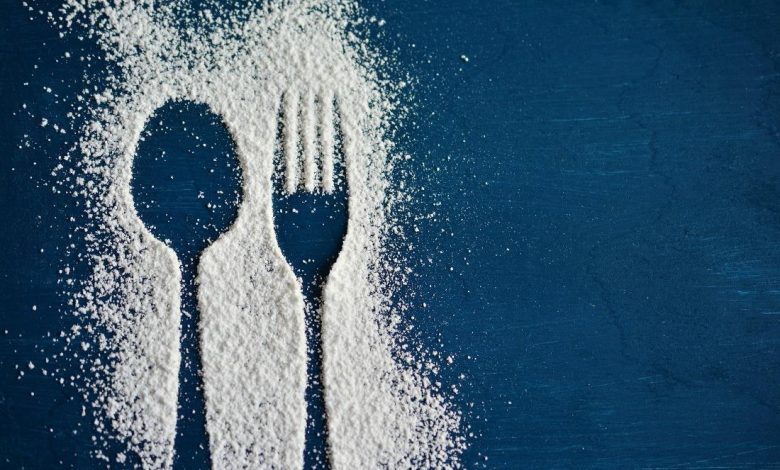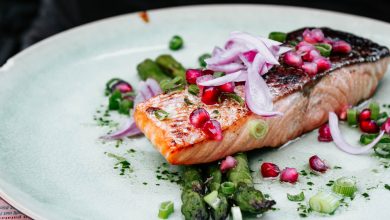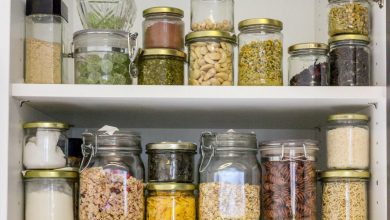
Your diet changes, but how does that affect your body?
A diagnosis of celiac or non-celiac gluten sensitivity automatically means going on a gluten-free diet. The news may bring mixed feelings: relief at having an answer to what has been plaguing your body, stress at the idea of facing such a complex diet change. However, making the changes does bring the promise of changes elsewhere; namely, in your body.
By and large, these changes will be positive and ones to look forward to. There are a few unpleasant ones that may occur, though, especially right at the beginning of the transition. Let’s take a look at what you can expect, both the beautiful and the ugly.
The Ugly
We can start here so this post can end on all the things you have to look forward to. Likely you have heard many promises about how much better your body will feel and function once you change to a gluten-free diet, and those are true. But there are some less-fun symptoms you may experience as your body adjusts, and they may make you question if you’re doing the right thing.
Never fear; while any symptoms that become too bothersome or last too long should be discussed with your physician, these unpleasant symptoms are likely to be temporary and indicate that your body is starting to detox from gluten exposure.
Constipation. This symptom can be a big one, especially if you eat a traditional Western diet. Western diets tend to rely heavily on bread and glutinous grains to provide dietary fiber to keep our bowels moving, and even with that, many of us fail to reach the daily recommended allowance. If your fiber intake depended on whole grains, skipping your daily bread is likely to cause a sharp decrease in fiber intake.
Fortunately, this is a simple one to avoid. Increase your fiber intake, either through a gluten-free fiber supplement or by eating high fiber foods such as produce and beans. If you still have difficulty, talk to your doctor about finding a gluten-free stool softener.
Anytime a person suddenly cuts a consumable out cold turkey, it can cause the body to go through withdrawal symptoms. Since that’s exactly what needs to happen with gluten, some backlash should be expected. Symptoms could include nausea, leg cramps, headaches, or fatigue, though depending on the symptoms gluten causes you, there may be no noticeable difference while you go through the detox period.
The best way to help your body cope is to drink plenty of fluids (stick with water or electrolyte drinks) and avoid too much strenuous activity.
Nutritional deficiency is probably the most ironic negative symptom you might experience in going gluten-free as, much of the time, issues with celiac cause nutritional deficiencies anyway. Like fiber, many people get a good amount of iron, folic acid, and B vitamins from the bread products they consume. Meaning, switching to gluten-free may mean you suddenly fall short of your intake.
The answer to this one is straightforward; track your diet to make sure you get all of your nutrients and find a gluten-free multivitamin to take daily. Multivitamins are generally a good idea for even the healthiest of people anyway, so get in the habit of taking yours so fixing your gluten-related problems doesn’t create others for you.
This last ugly is more a pain in the wallet than the body, but expect an uptick in grocery costs when switching to a gluten-free diet. While the expansion of gluten-free products available on the market has started bringing prices down, specialty diet foods always tend to come with a markup. Grocery costs will likely peak right after you switch as you replace pantry staples and experiment with new, gluten-free versions of your favorite foods but those costs will most likely always be higher than they used to be.
The Beautiful
All right, enough of the unpleasant symptoms you may experience coming off of gluten. Now to address the wonderful things coming your way as your body recovers and heals.
Having your small intestines attacked and experiencing near-constant gut-related symptoms tends to kill your appetite, even if you can keep the food inside of you. It’s common for people suffering from celiac or gluten-sensitivity to lose weight uncontrollably due to intestinal symptoms combined with having zero interest in food.
As these symptoms lift and your guts are repaired, food will start being appealing again. Your weight will likely yo-yo a bit as you adjust to a new, healthier digestive system, but putting on the healthy weight you need and enjoying food again is well worth any growing pains.
Brain fog—a feeling of lethargy and not thinking clearly—is a common complaint for digestive disorder sufferers. It can leave you feeling disorganized or incapable as you try to move through life. Fortunately, this is one you can look forward to kicking to the curb. Switching to a gluten-free diet gives most people relief from this pervasive symptom.
Healthy bodies are energetic bodies, so as your gut heals, there will be an energy increase. Aside from that, many celiac patients suffer from a nutritional deficiency; eating gluten-free allows the body to correct that issue. Better nutrition also means renewed energy and vigor. Finally, it’s time to finish that passion project you set aside a decade ago!
One of the side effects of celiac-induced intestinal damage is that the intestines can lose the ability to produce the enzymes necessary to digest certain food groups. It’s common, for example, for someone to both have celiac and be lactose intolerant. So what’s the good news?
If the food intolerance is directly related to damage in the gut, repaired and healthy guts can start producing those missing enzymes again. This particular positive outcome should be tested with caution (it would be terrible to have a sudden setback due to an ice cream binge), but being able to add some foods back into your diet is a great bonus.
It can take years and a lot of false diagnoses to finally be told that the root of your problem is gluten, and going gluten-free is a lot to take on. Just remember, unpleasant symptoms will only last a short time while health, energy, and a renewed mind will be with you the rest of your life. Stay true to your gluten-free diet and you’ll definitely reap the rewards.
Sources:
https://www.delish.com/food/a19480917/what-happens-when-you-go-gluten-free/
https://www.prevention.com/food-nutrition/a20480440/what-happens-when-you-give-up-gluten/
https://www.healthline.com/nutrition/22-high-fiber-foods













